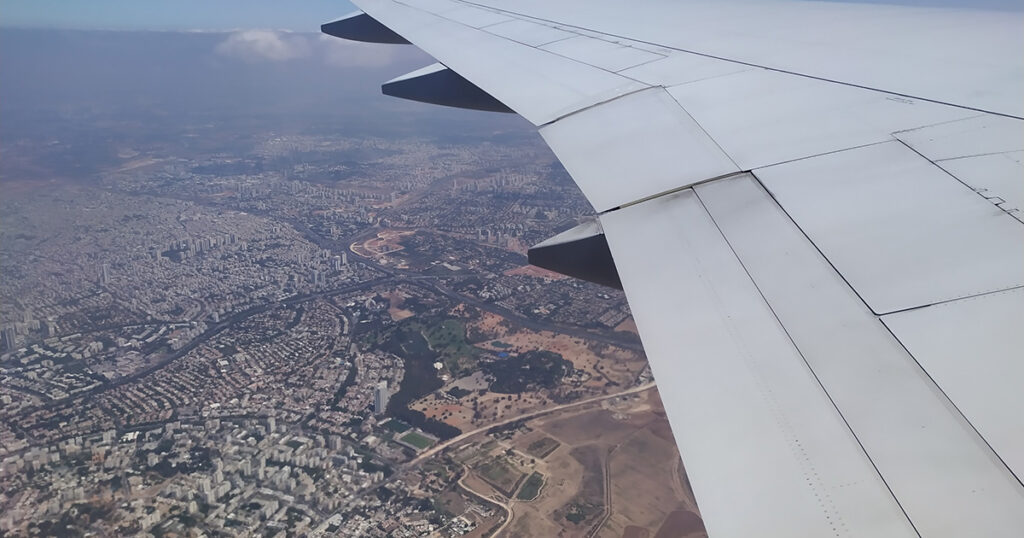Are you someone that wants to travel? Are you putting off exploring the world so you can complete your degree? Study abroad programs allow you to do both things at the same time! I recently had an amazing opportunity to live my dream of traveling to and teaching in Africa — and I received college credit for the experience.
Africa has always held a very special place in my heart. Part of what made this trip so important to me is that my mom was born in Ethiopia and spent a summer in Kenya. My dad has visited Nigeria multiple times. For three years, I tried to find my way to Africa. I felt like a piece of me was already there. I knew that I would get there one day; I just wasn’t sure how.
Making The Dream a Reality
It wasn’t until I enrolled at Eastern Florida State College that my dream became a reality. EFSC coordinates several study abroad opportunities for different majors; mine was for students taking education classes. Words cannot express how excited I was when one of my professors told me we would be going to Africa to teach. Even now, I have to pinch myself to believe that it really happened.
With our hearts full of adventure, and our 14 suitcases full of school supplies and books, my classmates and I soon found ourselves jetting off to Zambia, Africa. It took four separate flights to get there — the longest of which lasted 15 hours! We were there for a total of 23 days, most of which were spent teaching kindergarten through third grade at the Kafakumba Christian School.
Structure of a Study Abroad Program
We really got to know the students and teachers while we were there, and they were very appreciative of the new ideas and supplies we brought to their school. Two of our three weeks in Zambia were spent assisting our assigned classroom teachers with lessons, and even teaching some of our own. My partner, Kaylee, and I were placed in a third grade classroom, where we taught math, reading, social studies and science. Each classroom at this private school had about 15 students in it, compared to the more than 60 students you find in most public Zambian classrooms.
One of my favorite activities we did with the kids was work on alternate endings. Our groups read fairy tales, such as “Cinderella,” “Puss in Boots” and “Jack and the Beanstalk.” Afterwards, they got to write an alternate ending. My group decided that Cinderella and her stepsisters would have a dance battle instead of her losing a shoe and the prince finding it!
This experience was so amazing, it is honestly hard to put into words. Each day was a new adventure: meeting new people, learning new words in Bemba and falling more in love with a place that now has a hold on my heart completely. If you’re thinking about studying abroad yourself, here are a few points to consider:
Where To?
Many schools offer different study abroad destinations depending on what you’re studying. Eastern Florida has trips for students in Business, Nursing, Humanities, Education, Biomedical Science, Ecology and more. The specific countries vary each year. In the past, they’ve included Africa, China, Japan, Guatemala and multiple places in Europe.
What About the Cost?
I won’t lie; studying abroad can be expensive. I absolutely loved my time in Africa, but in the end, it took about $5,000 to get me there. Most study abroad courses are not covered by financial aid because they aren’t required for your degree. But if you know ahead of time that you want to go on a trip, you can start early with fundraising or saving money. And remember: Not all study abroad courses cost $5,000. Air fare, excursions, housing and food all play into exactly how much your trip will cost, so be sure to shop around for something in your budget!
You Mean It Isn’t Just a Vacation?
Don’t forget that this is an actual class! Sure, you aren’t in a normal classroom, and you might not have to use a textbook to submit assignments — but you will still have work to turn in. Student teaching was one of my assignments, but thankfully it was something I wanted to do (and it was really my reason for going), so that wasn’t so bad. We also had to write at least six lesson plans to give the teachers we worked with while we were there. Assignments will vary from trip to trip, but at the end of the day, you’re there to learn, no matter how much fun you’re having in the process!
What About Culture Shock?
As a visitor to another country, it’s important to make efforts to adapt to the local culture, especially when it’s vastly different from your own. It may feel uncomfortable from time to time, but little things, such as knowing which hand to eat with or learning some of the language, will add to your experience in the end. In Zambia, our group actually got to eat caterpillars and nshima (a traditional Zambian porridge). We even ate them with our hands — an enjoyable cultural experience that we connected with the locals over.
Will I Get To Go Sightseeing or Do Tourist Activities?
Most study abroad programs have these kinds of activities built into their itinerary. Depending on where you travel, there are always sights to see and adventures to be had. We stayed near Lake Kashiba, which is a sunken lake that happens to be great for cliff jumping. We also got to see the beautiful Victoria Falls, which is almost twice the size of Niagara Falls. One of my favorite activities was going on a safari, where we interacted with elephants! Some excursions cost more money than others, and some require more guts, like gorge swinging. (Side note: Gorge swinging feels like you’re falling to your death.) This is definitely something to take into consideration before going on a trip, as you’ll want to be both financially and mentally prepared!
What If I Don’t Know Anyone?
Don’t worry. Through the nature of study abroad, you will form relationships that last a lifetime. I don’t think that I could have asked for a better group of people to spend three weeks with. Since coming home, we have kept in contact and still hang out whenever we can. Going to Zambia was a life-changing experience that we shared, and it’s something that no one else can fully relate to. This is not to exclude the relationships we made with people in Zambia. The families we stayed with, the teachers we taught with, the students we loved and everyone who helped us in any way have all stolen pieces of our hearts. I still call one of my Zambian friends regularly, and we can’t wait until the next time we get to see each other.
Ultimately, studying abroad in Zambia has filled me with joy and better prepared me to be a teacher. The friends I made, the experiences I had and the lessons I learned will stick with me for the rest of my life, and I am so thankful to have had this opportunity. If you have the means to study abroad, I highly recommend doing so. It’ll challenge you in ways you never imagined, and you’ll learn more about the world and yourself in the process.
Check Out These Great Photos From My Trip

- Working on Campus - August 21, 2019
- Study Abroad: Just Do It - June 5, 2019
- Thinking About Teaching? Join the Club! - April 17, 2019




